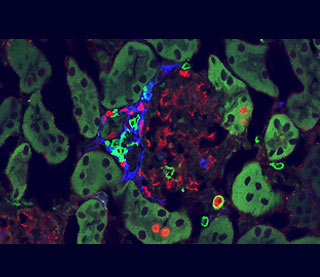
During the research, scientists were possibly able to decline signs of lupus in mice by eliminating dendritic cells. It is predicted that dendritic cells are important for activating T cells which along with B cells encompass the two main arms of the immune system. Excluding the dendritic cells in lupus mice may not decrease the activation of pathogenic T cells. In fact, the cells presumably vanished from inflamed tissue like kidneys. As a result, symptoms in lupus mice lacking the dendritic cells were seemingly reduced.
It is believed that dendritic cells play a localized role in lupus tissue damage. Mark Shlomchik, Professor of Laboratory Medicine and of Immunobiology and senior investigator and colleagues assert that targeting these cells can help treat lupus and other autoimmune diseases as well. Dendritic cells can presumably create the same effects in a variety of other autoimmune diseases too.
The research was published in the December 16 issue of the journal Immunity.
